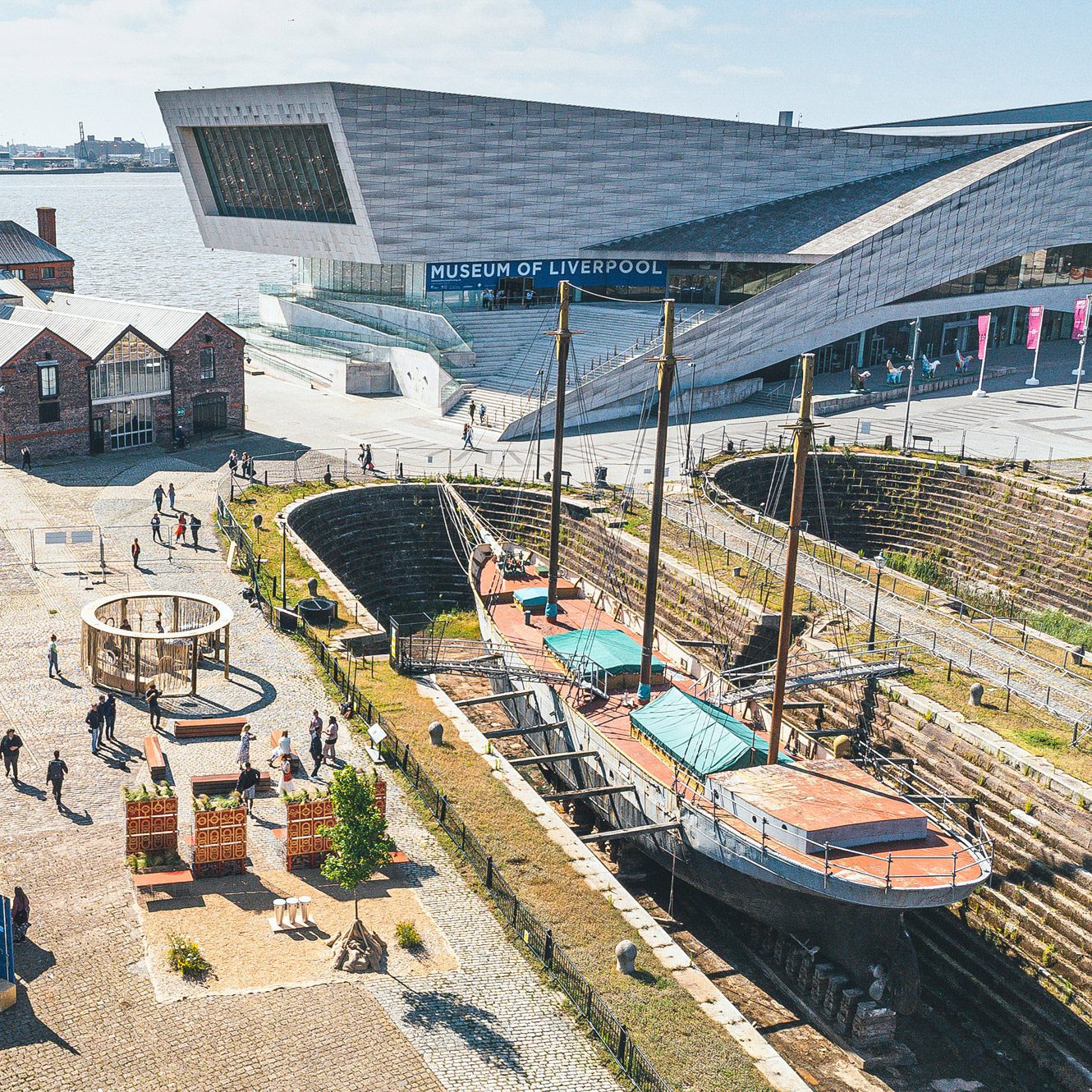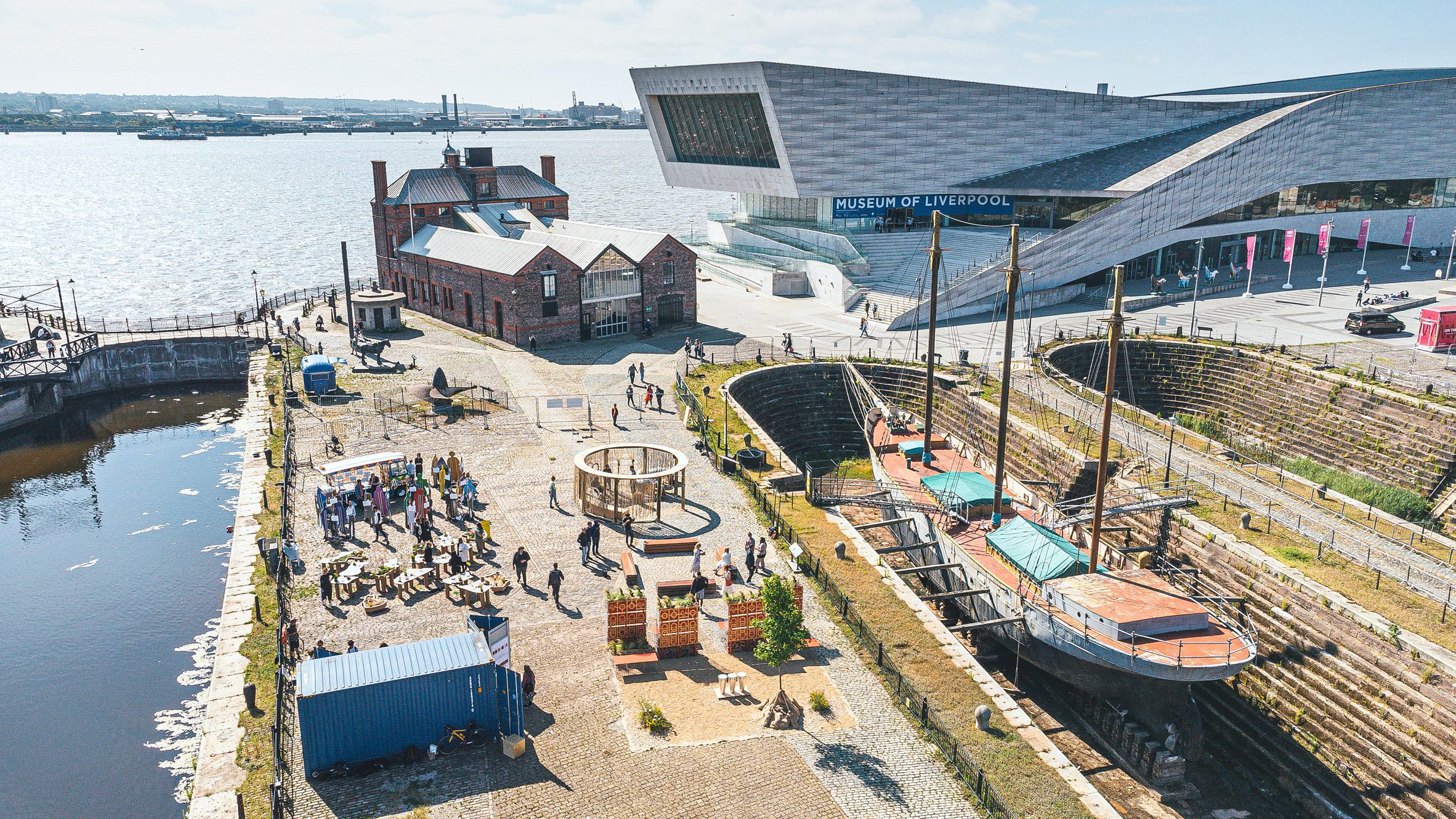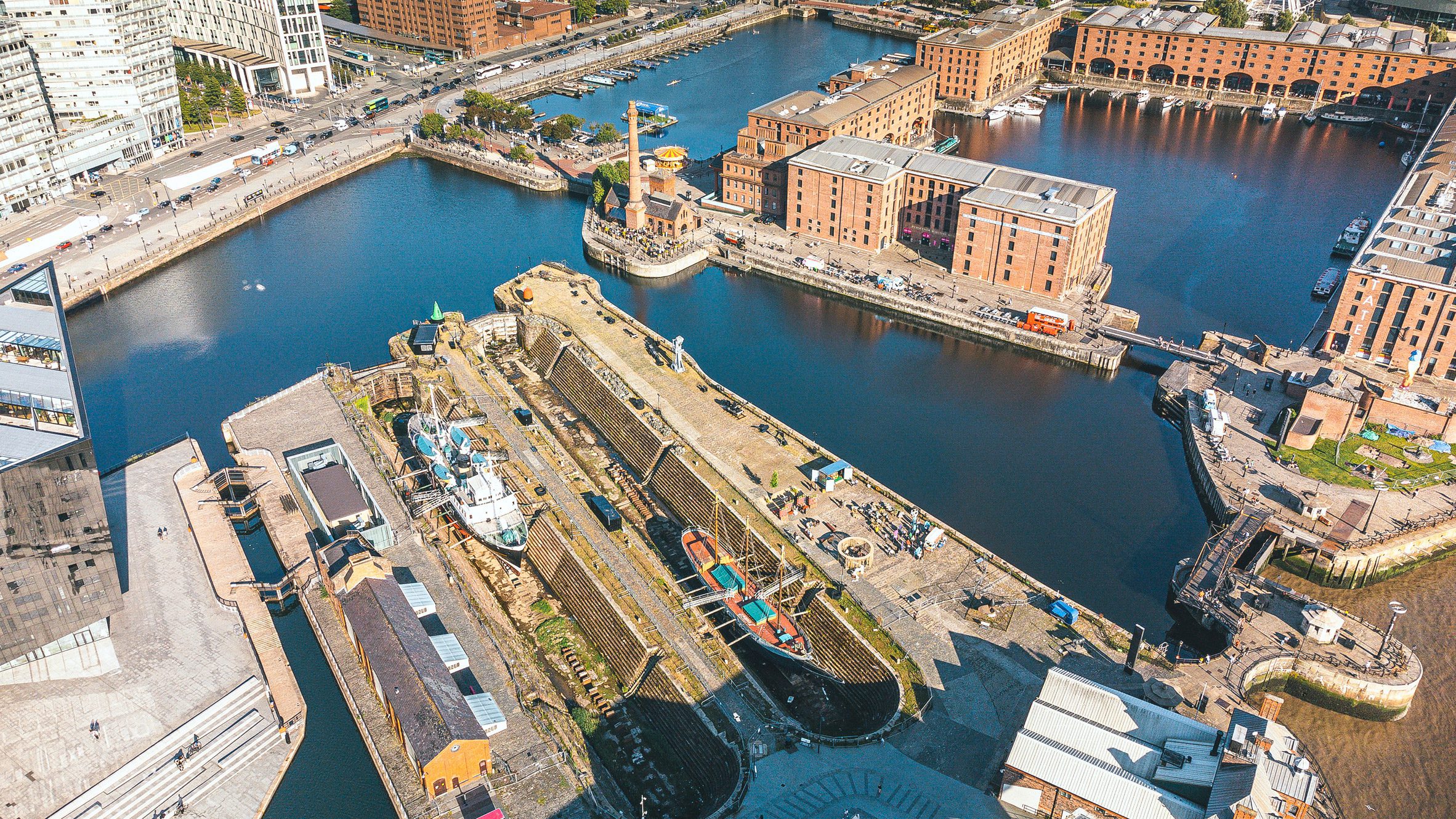Asif Khan, Mariam Kamara, David Adjaye and Theaster Gates to redevelop Liverpool waterfront
Encrypting your link and protect the link from viruses, malware, thief, etc! Made your link safe to visit.

Architects Asif Khan, Mariam Kamara and David Adjaye and artist Theaster Gates have been chosen to transform Liverpool's Canning Dock in a project aiming to bring the history of the transatlantic slave trade into the public realm.
The team was unanimously chosen as the winner of the Canning Dock competition by a jury of local representatives and industry experts, beat competitors including architecture studios BIG and OMMX.
The Waterfront Transformation: Canning Dock project, which is part of National Museums Liverpool's 10-year plan to transform the city's waterfront, will encompass the area between the Royal Albert Dock and Mann Island as well as all waterfront facilities.
It intends to revitalise the complex site, which was used in the 18th century to serve and repair ships including those used in the transatlantic slave trade.
Project "explores the power of architecture as a storytelling tool"
Together with Plan A Consultants, Prior + Partners, The Place Bureau, Hara Design Institute, Akt II and Arup, the winning studios will redevelop the site's buildings including the Dr Martin Luther King Jr building, which will sit at the centre of the International Slavery Museum.
The museum, which houses exhibitions that explore and investigate the legacies of the transatlantic slave trade, will also be given a "dramatic" new front door as it does not currently have its own entrance.

"The Canning Dock transformation is a chance to explore the power of architecture as a storytelling tool to bridge the gaps in knowledge that exist about the history of Liverpool as well as this significant site," Atelier Masomi-founder Kamara said.
"The NML Waterfront Transformation is an opportunity to pull on the threads that make up the history of the transatlantic slave trade – from Africa, across the Atlantic to the US and back to Liverpool – to bridge gaps, to exhume memories and ultimately bring to the fore an exciting space for the public to explore and engage with the history of Liverpool while firmly facing towards the future."
Team to design new bridges and redevelop dry docks
The team's redesign will focus on the public realm of the project and will encompass new bridges from the Pump House to Mann Island, as well as a transformation of two dry docks into an "educational and cultural experience."
"Our collaborative team composed of technical architects, planetary architects and an artist envisions the NML Waterfront Transformation as an opportunity to powerfully reformulate the history of Liverpool through re-invigorating the diverse social, civic and environmental context of the city," said Adjaye.

The project intends to use "compelling, yet sensitive" designs to bring the history of the slave trade to the forefront and will work together with Liverpool's Black communities.
Khan said that for the team, this is more than just a project.
"For National Museums Liverpool we have formed a different kind of design team – not simply to deliver a project, but to steward a significantly meaningful one into being," he explained.
"This new piece of history will welcome voices from across Liverpool and globally from the places and people connected with Canning Dock."
Transformation will include public art strategy
Part of the development will include creating accessible recreational routes in the area, including pedestrian links to the Canning Dock. The new design, which aims to realise the complexity of the site, will also include a public art strategy.
"Commemoration and memorial making are some of the most important acts a nation can be involved in – especially commemoration around racial complexity and social ill," Gates said.
"Canning Dock represents one of the most important racialised sites in the UK and it gives me tremendous honour to work with this team to realise the complexity of the site."
Arup, BIG, DSDHA, OMMX and Shedkm were the other teams shortlisted for the project, which was managed by Colander Associates and supported by £120,000 of funding from the Liverpool City Region Combined Authority (LCRCA), as part of their Race Equality Programme.
In a live talk streamed on Dezeen last year, Adjaye spoke of how a lack of memorials and monuments dedicated to the victims of slavery is leading to ignorance and memory loss.
The Liverpool waterfront and docklands previously held UNESCO World Heritage status, but the city was stripped of the honour earlier this year due to recent developments on the waterfront.
Images are by Gary W Smith.
The post Asif Khan, Mariam Kamara, David Adjaye and Theaster Gates to redevelop Liverpool waterfront appeared first on Dezeen.





0 Response to "Asif Khan, Mariam Kamara, David Adjaye and Theaster Gates to redevelop Liverpool waterfront"
Post a Comment